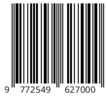BASA-BASI DALAM PERCAKAPAN KOLOKIAL BERBAHASA JAWA SEBAGAI PENANDA KARAKTER SANTUN BERBAHASA
Abstract
Abstract
The phatic communion is the standardized ritual repertoire in Indonesia culture, particularly in Javanese socioculture. The speech is a form of clichés which can be spoken by any Javanese speakers to the situation to start a conversation. The purposes of this research are to identify (1) the markers of phatic communion in colloquial Javanese language, (2) the types of phatic communion in colloquial Javanese language, (3) communicative functions of phatic communion (metalinguitics politeness) as the politeness markers in spoken language. In this study, I used pragmatic approach by analysing the language functions in which they are expressed in the form of speech acts. The data were colloquial Javanese language which had phatic communion. The subject of the study were standard Javanese speakers, Banyumas Javanese speakers, and East Java Javanese speakers. The data were collected by recording technique and note-taking technique. The data were analyzed by using Creswell’s steps. In this study, there were six categories of the phatic communion in colloquial Javanese language. They were congratulation, hope, humiliation, invitation, prohibition, and farewell. In their construction, the speakers used the phatic marker as the modifier and the markers of speech purposes. Thus, this form of communication showed the characters of polite language.
Kata kunci: basa-basi, penanda fatis, bahasa Jawa, santun berbahasa
Full Text:
PdfDOI: https://doi.org/10.31002/transformatika.v11i2.215
DOI (Pdf): https://doi.org/10.31002/transformatika.v11i2.215.g167
Refbacks
- There are currently no refbacks.
Copyright (c) 2017 TRANSFORMATIKA


_(2)_.png)
.png)
_.png)
.png)
.png)















